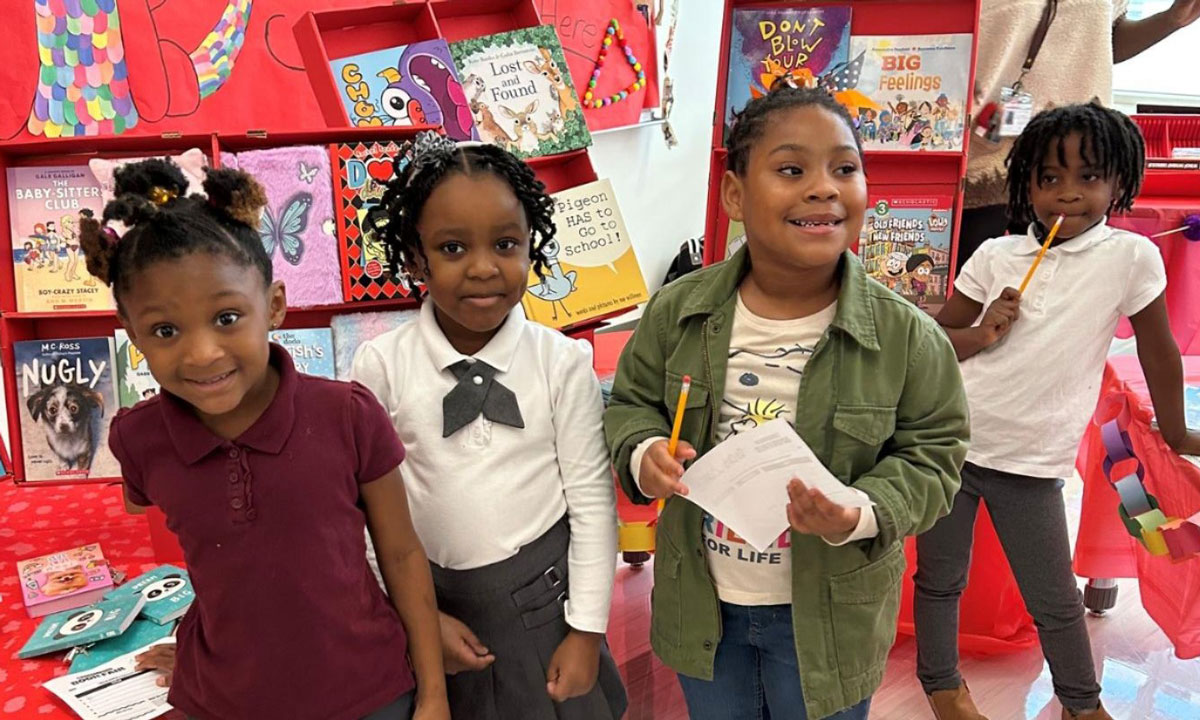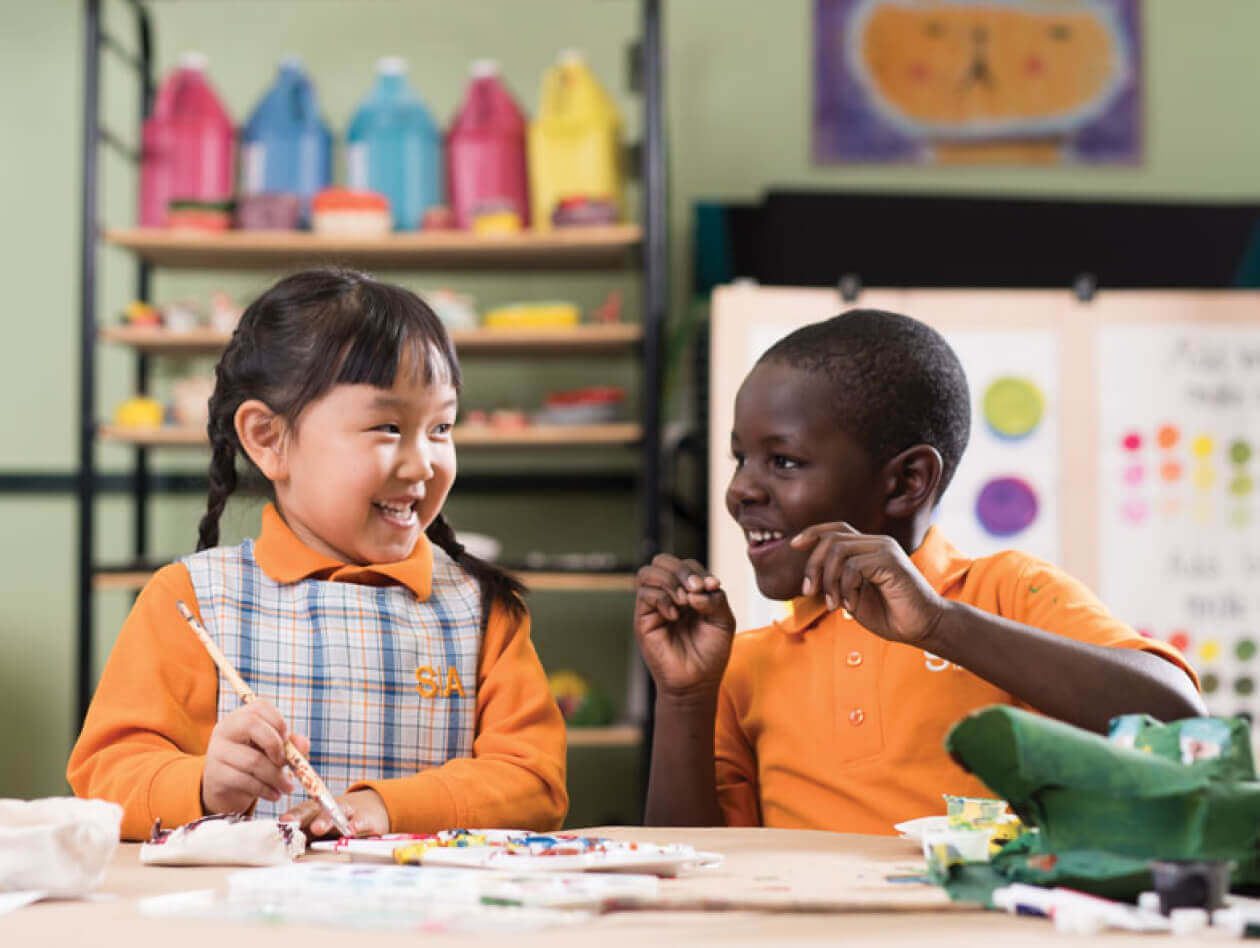How Private School education surpasses traditional learning
Wiki Article
All Regarding Kindergarten: Comprehending the Importance of Very Early Childhood Education And Learning Programs
Kindergarten works as an important stage in a youngster's early advancement. It presents foundational abilities vital for future learning and social communications. Through different tasks, children take part in organized play that promotes cognitive growth. Recognizing the nuances of various preschool programs can even more brighten their value. What details advantages do these early education experiences offer, and just how do they shape a youngster's trajectory? The answers may be extra complex than one may anticipate.
The Function of Preschool in Kid Growth
Although some might see kindergarten simply as a transition stage prior to formal education, it plays a necessary duty in child development. This fundamental phase cultivates critical social, psychological, and cognitive abilities that are crucial for long-lasting discovering. In preschool, kids take part in structured play, which improves their ability to cooperate, share, and deal with conflicts with peers. These communications prepared for healthy relationships and boosted interaction skills.In addition, preschool presents kids to basic concepts in proficiency and numeracy, stimulating interest and a love for learning. Educators assist students via tasks that promote essential and analytical thinking, crucial elements of intellectual growth. Moreover, the setting highlights routine and framework, helping youngsters establish self-control and self-reliance. By focusing on all natural development, preschool guarantees that kids are not only prepared academically yet likewise socially and emotionally for the difficulties of future educational ventures.
Key Benefits of Very Early Childhood Education
Early childhood education offers many benefits that can considerably impact a kid's growth and future success. Research suggests that youngsters who take part in quality early education and learning programs show enhanced cognitive abilities, far better language development, and enhanced social abilities compared to their peers who do not participate in such programs. These fundamental skills are important as they establish the stage for academic accomplishment and long-lasting learning.Very early education and learning cultivates psychological advancement by giving children with opportunities for cooperative play and conflict resolution, helping them establish durability and empathy. In addition, these programs frequently help connect the space for kids from diverse backgrounds, guaranteeing fair accessibility to finding out experiences and sources
Eventually, buying early youth education not just benefits individual children but also adds to more powerful areas, as informed individuals are much more likely to engage favorably in culture and the workforce.
Different Kinds Of Kindergarten Programs
Various preschool programs provide to different educational philosophies and needs. Full-day alternatives give extensive discovering time, while the Montessori technique highlights independence and hands-on experiences. In addition, play-based discovering methods foster creativity and social skills, highlighting the variety in early childhood education and learning.Full-Day Kindergarten Options
Many moms and dads and teachers recognize the expanding significance of full-day kindergarten alternatives in early childhood years education and learning. Full-day programs generally provide an even more complete learning experience, permitting kids to participate in a range of tasks throughout the day. These choices often consist of a balanced educational program that integrates scholastic, social, and emotional advancement. Some districts use traditional full-day preschool, while others may supply specialized programs, such as double language or thematic learning atmospheres. In addition, full-day kindergarten can suit working moms and dads by aligning institution hours with regular work routines. Study suggests that trainees in full-day programs often show boosted academic performance and social abilities contrasted to their peers in half-day settings, making these choices increasingly prominent in several communities.Montessori Technique Review
Although the Montessori method is simply among many educational ideologies, it has acquired considerable focus for its one-of-a-kind emphasis on child-led knowing and exploration. Developed by Dr. Maria Montessori, this technique focuses on promoting self-reliance and self-directed task in youngsters. Class are typically developed to encourage movement and hands-on engagement with materials, allowing children to learn at their own rate. Montessori instructors act as overviews, assisting in discovering with observation rather than direct direction. This method prioritizes mixed-age class, advertising cooperation and peer discovering. Furthermore, the Montessori technique highlights useful life skills and sensory tasks, aiding kids establish a strong structure in both scholastic and social proficiencies. Parents often value the alternative development that this approach supports in their kids.Play-Based Discovering Techniques
Play-based learning approaches are important to various kindergarten programs, stressing the significance of play as an essential setting of learning for young kids. These strategies urge expedition, creativity, and social communication, allowing children to take part in hands-on experiences that foster emotional and cognitive growth. Different sorts of play, such as creative, constructive, and physical play, are made use of to support finding out goals throughout subjects like literacy, math, and science. Additionally, play-based programs usually incorporate joint tasks, advertising team effort and interaction skills. Educators observe and assist youngsters during play, making certain that discovering end results are achieved while preserving a joyous knowing setting. This approach not only improves academic preparedness yet also cultivates a long-lasting love for understanding, making it a vital part of very early childhood education.The Value of Play in Understanding
A significant body of research study highlights the important role of play in early childhood education, showing its extensive influence on discovering and growth. Play acts as a crucial device where little ones explore their environment, develop cognitive skills, and boost their analytical capacities. Engaging in imaginative play allows visit this web-site children to experiment with different functions and scenarios, cultivating creative thinking and essential reasoning.Moreover, play-based learning urges youngsters to engage with materials and principles in a hands-on way, making abstract concepts a lot more substantial and reasonable. This experiential understanding method not only records kids's rate of interest however also advertises innate motivation, basic for long-lasting knowing.
Through play, youngsters also refine their electric motor skills and spatial awareness, laying the foundation for much more complex scholastic tasks. Basically, prioritizing play in early childhood years education programs is essential for nurturing all natural advancement, equipping youngsters with the foundational abilities needed for their future educational trips.
Social Abilities Advancement in Kindergarten
Building on the structure established with play, preschool works as a vital environment for social abilities development. During this developmental stage, kids take part in structured tasks that encourage interaction with peers. Via group jobs, participating video games, and shared jobs, they discover important abilities such as conflict, empathy, and communication resolution.Teachers facilitate these interactions, guiding children in comprehending social cues and cultivating positive relationships. As youngsters navigate numerous social situations, they develop a sense of belonging and discover to value diverse point of views.
Moreover, kindergarten offers possibilities for kids to practice turn-taking, sharing, and settlement, which are crucial for building relationships. These experiences not just boost social capability yet likewise add to emotional knowledge. Consequently, the social abilities acquired in preschool prepared for successful interactions in later educational settings and throughout life. The value of social abilities growth in kindergarten can not be overemphasized.
Parental Involvement in Early Education

When moms and dads demonstrate an interest in their child's education, it grows a positive perspective in the direction of understanding. Kids are more probable to develop a sense of belonging and motivation to be successful when they really feel sustained. Additionally, parental involvement can improve a child's emotional wellness, resulting in better strength in dealing with institution obstacles. As a result, cultivating a collective environment in between home and college is important for maximizing early academic experiences and end results.
Preparing for the Transition to Elementary Institution
As children approach completion of their kindergarten journey, preparing for the modification to grade school becomes progressively essential. This change calls for cautious preparation and support from both parents and instructors. Acquainting children with the new environment, regimens, and expectations of grade school can alleviate their anxiousness and promote self-confidence.
Schools often give alignment sessions that introduce youngsters to their future classrooms and instructors, promoting a feeling of belonging. In addition, parents can involve in conversations regarding the modifications ahead, stressing the amazing possibilities for learning and social communication.
Encouraging freedom in daily tasks, such as complying with a timetable and clothing, can likewise be advantageous. Practicing necessary abilities, such as letter recognition and fundamental mathematics, prepares children academically for very first grade.
Ultimately, a collaborative initiative amongst moms and dads, instructors, and the community assures a smoother shift, laying a solid structure for an effective academic journey.
Often Asked Questions
What Credentials Should Kindergarten Educators Have?
Kindergarten teachers ought to possess a bachelor's level in very early childhood years education or a relevant field, together with state certification. Added qualifications may include specialized training in youngster development, classroom management, and efficient teaching methods.Just how Do I Pick the Right Kindergarten Program?
To select the appropriate kindergarten program, one must think about helpful hints factors like educational program, teaching approaches, course dimension, teacher certifications, and moms and dad evaluations. Visiting facilities and observing communications can additionally provide important understandings right into the program's environment.What Should My Child Learn in Preschool?
In preschool, a kid needs to learn fundamental abilities such as fundamental analysis and writing, counting, social interactions, analytical, and electric motor abilities. These expertises foster cognitive growth and prepare them for future instructional difficulties.Are There Age Needs for Kindergarten Registration?
A lot of states require youngsters to be five years old by a particular date, commonly September 1st, for preschool enrollment. Nonetheless, particular age requirements can differ, so inspecting local college district laws is crucial.
How Can I Support My Kid's Learning at Home?
To support a kid's understanding at home, parents can establish a regular, give engaging educational materials, motivate analysis, join hands-on activities, and foster open communication to nurture interest and essential reasoning abilities.Kindergarten serves as a vital phase in a child's early advancement. Some might check out preschool just as a transition stage prior to official education, it plays an essential duty in child development. In addition, preschool presents youngsters to standard principles in proficiency and numeracy, triggering inquisitiveness and a love for learning. Play-based understanding strategies are integral to numerous kindergarten programs, emphasizing the importance of play as a fundamental setting of learning for young youngsters. In preschool, a kid should learn fundamental abilities such as fundamental reading and writing, counting, social interactions, problem-solving, and electric motor abilities.
Report this wiki page